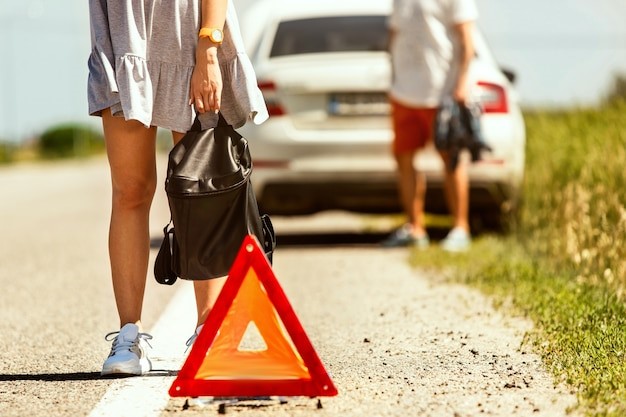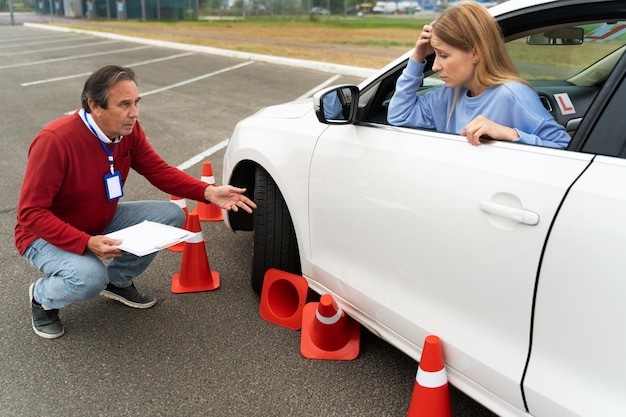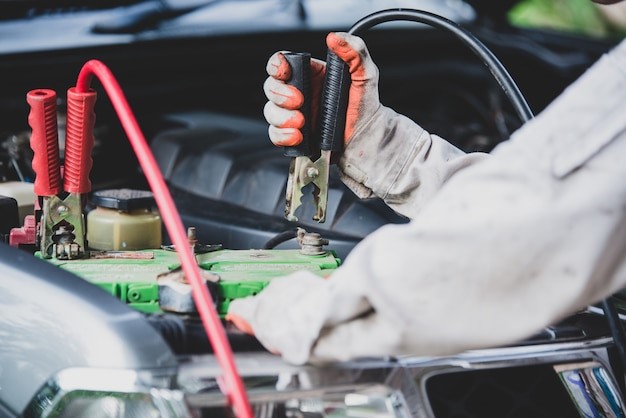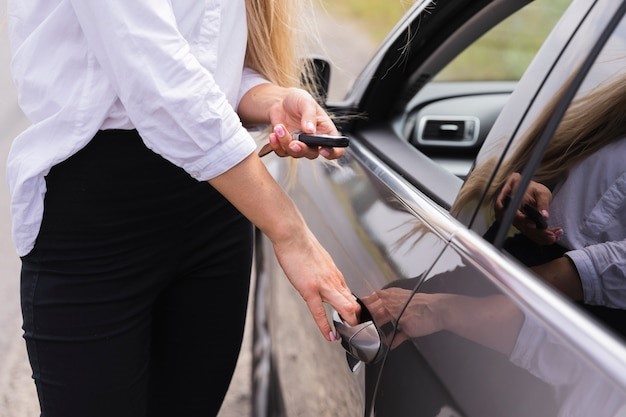When your car battery dies, discarding it in the trash does more than simply contribute to the landfill, it’s illegal and dangerous. Whether you’re the one swapping a dead battery or you have a mechanic doing it, it’s important to know how to dispose of a car battery properly, for your own safety, the environment and your wallet.
This comprehensive guide offers an explanation of why disposal is important, how to do it safely and links for where you can take your old battery without going through the wringer.
Importance of Adequate Disposal of Your Car Battery
Environmental Hazards of Improper Disposal
Lead, sulfuric acid and other toxic materials are the compounds used in car batteries. If they are dumped in a landfill, or allowed to sit in the open, they can contaminate soil and water supplies. Lead exposure can devastate plant life, poison wildlife and even leach into drinking water. Acid can corrode metal, corrode concrete, and destroy infrastructure. Correct recycling is the only solution to eliminate this danger and safely recover the products.
Legal Implications in the U.S.
United States In the U.S. both federal and state laws regulate how to dispose of batteries. Lead-acid batteries are considered hazardous waste under the Resource Conservation and Recovery Act (RCRA). Illegal dumping can result in hefty fines and criminal charges. (Many states require retailers to take used batteries when you buy a new one, which would be an easier, more enforceable way to recycle.)
Human Health and Safety Effects
Improper disposal can also expose people to lead dust and acid burns. Children are particularly susceptible to lead poisoning, which can result in developmental delays and neurological damage. Just handling a leaky battery with your bare hands may lead to skin irritation or chemical burns. That’s why it’s crucial to deal responsibly with old batteries.
Signs You Need To Replace Your Car Battery
Before you start considering disposal, you’ll want to be sure that your battery truly does need to be replaced. The following are common warning signs:
Swollen Battery Case
If your battery is bloating or warped, it’s a clear indication of internal failure, often due to overheating or overpowering. In the case of swelling, the battery is not safe to use and needs to be replaced immediately.
Frequent Jump Starts
“Requiring a jumpstart every few days or weeks is not normal. If your car really struggles to start again and again, your battery’s likely losing capacity and it’s time to swap it out.
Foul Smell or Corrosion
A stink of rotten eggs is the alarm that sulfuric acid or gas may be leaking. Corroded terminals are also a sign that the battery has seen better days. Both conditions warrant immediate attention.
How to Properly Dispose of a Car Battery
When you’re confident that your battery is indeed done for, here’s what to do to properly dispose of it.
Step 1. Remove the Battery Safely
Before you remove the battery:
- Wear gloves and eye protection.
- Shut off the engine and engage the parking brake.
- Disconnect the negative cable and then the positive cable.
- Take the battery up lifting it upwards to prevent any spills.
If you don’t know how to do this, ask a professional mechanic or roadside assistance service for assistance.
Step 2. Place the Battery in a Secure Container
An old battery should never be placed directly on concrete, it can discharge more quickly that way. Instead:
- Place it inside a hard plastic bin, or a heavy-duty cardboard box.
- Stays upright and ensure that the product stands steady to avoid tipping.
- Keep it in a cool, dry place, the pump away from heat and open flame.
- This Business About Leaks, Prevent Accidental Contact With Acid.
Step 3. Locate an Authorized Recycling Facility
You can’t just toss the battery in your household trash. Instead, locate an authorized recycling center or drop-off site. In many states and localities, there are collection sites.
Step 4. Transport and Drop-Off Guidelines
When transporting your battery:
- Keep it upright at all times.
- Don’t stand it near any metal where it can short between the terminals.
- Drive a car with a lot of ventilation should you are divulged to smogy gas.
When you get there, comply with the staff to ensure a safe hand-off. Most facilities have a slip they give you to sign after you dispose of the items proving they have been properly disposed.
Where to Take Your Old Car Battery
There are a number of easy ways you can recycle:
Auto Parts Stores
Big auto parts retailers typically will take your used battery — and give you a credit or discount toward your new one. And many stores are part of the battery recycling programs that state laws require.
Battery Retailers and Service Shops
Stores that sell batteries or do auto repair generally take in old units. A few do charge a small disposal fee and some are included in your replacement service.
Local recycling centers and hazardous waste events
Household hazardous waste collection parties, held by counties and cities, can be another place to drop off car batteries, paint, oil and other items for free. Visit your local solid waste agency’s website for event dates and locations.
Can You Recycle Car Batteries at Home?
Why DIY Recycling Is Dangerous
Though the idea of recovering materials yourself may sound appealing, DIY battery recycling is incredibly dangerous. There is the heavy risk of lead exposure, acid burns and toxic fumes. The process also demands that specialized equipment and stringent safety measures that most households just don’t have.
Safe Alternatives and Pick-Up Services
If you’re not able to transport the battery yourself, you might find that local retailers or service providers offer pickup services for a fee. In some states, the retailer is required by law to accept your old battery when you purchase a new one. Who to call If you run into a problem with a battery, always seek a certified pro vs. trying to take it apart or otherwise make it benign at home.
What You Shouldn’t Do When You are Throwing Out a Car Battery
Here are some mistakes to avoid to protect yourself and the environment:
Do Not Throw in Trash
Batteries thrown in the trash go to landfills, where they leak toxic chemicals. This is illegal in many places and fines can be imposed.
Avoid Dumping in Open Land
Discarded in empty lots the woods, batteries contaminate soil and ground water. The costs of cleaning up can be impressive, and you could be blamed.
Never Burn or Dismantle It Yourself
Attempting to incinerate or disassemble a battery can produce dangerous fumes and start fires or explosions. Always use approved recycling services.
FAQs
Yes, most places that sell automotive batteries will issue a credit of some type, ranging from $5–$15 per battery. At some locations you can get store credit for your next purchase.
The tendency of the vast majority of car batteries is to last 3-5 years, contingent on the climate, driving conditions and vehicle maintenance. Severe temperatures and regular short journeys are likely to reduce their life.
No, EV batteries are bigger and much more complicated. They will need to be sent to a licensed EV battery recycle centre. We always recommend contacting your dealer or manufacturer.




